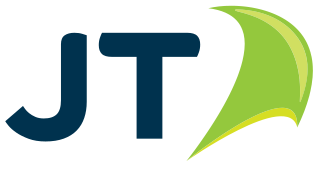Telecommunications in France are highly developed. France is served by an extensive system of automatic telephone exchanges connected by modern networks of fiber-optic cable, coaxial cable, microwave radio relay, and a domestic satellite system; cellular telephone service is widely available, expanding rapidly, and includes roaming service to foreign countries.
Communications in Gibraltar comprise a wide range of telephony systems, Internet access, broadcasting and satellite control. There is also printed and online media. Regulation of telecommunications and broadcasting are the responsibility of the Gibraltar Regulatory Authority (GRA), established by means of the Gibraltar Regulatory Authority Act in 2000.
The Isle of Man has an extensive communications infrastructure consisting of telephone cables, submarine cables, and an array of television and mobile phone transmitters and towers.
The services of communication in Jersey comprise Internet, telephone, broadcasting and postal services, which allow islanders to contact people and receive information from outwith the island.
Telecommunications had an early beginning in Mauritius, with the first telephone line installed in 1883, seven years after the invention of the telephone. Over the years, the network and telephony improved. By the late 20th century, the rapid development and convergence of information and telecommunications technologies gave rise to an ICT industry on the island along with many incentives provided by the government. The government thus aims to make the ICT sector the 5th pillar of the Mauritian economy and Mauritius a Cyber Island. Historically, the country is known for tourism, rather than its call centers and business process outsourcing.
Telecommunications in New Zealand are fairly typical for an industrialised country.
Telecommunications in the Philippines are well-developed due to the presence of modern infrastructure facilities. The industry was deregulated in 1995 when President Fidel Ramos signed Republic Act 7925. This law opened the sector to more private players and improved the provision of telecom services are better and fairer rates, leading to the creation of many telecommunication service providers for mobile, fixed-line, Internet and other services.

Censorship and the issue of media freedom in Russia have been main themes since the era of the telegraph. Radio was a major new technology in the 1920s, when the Communists had recently come to power. Soviet authorities realized that the "ham" operator was highly individualistic and encouraged private initiative – too much so for the totalitarian regime. Criminal penalties were imposed but the working solution was to avoid broadcasting over the air. Instead radio programs were transmitted by copper wire, using a hub and spoke system, to loudspeakers in approved listening stations, such as the "Red" corner of a factory. Due to the enormous size of the country Russia today leads in the number of TV broadcast stations and repeaters. There were few channels in the Soviet time, but in the past two decades many new state-run and private-owned radio stations and TV channels appeared.
Telecommunications in the United Kingdom have evolved from the early days of the telegraph to modern broadband and mobile phone networks with Internet services.
The liberalisation of Bangladesh's telecommunications sector began with small steps in 1989 with the issuance of a licence to a private operator for the provision of inter alia cellular mobile services to compete with Bangladesh Telegraph and Telephone Board (BTTB), the previous monopoly provider of telecommunications services within Bangladesh. Significant changes in the number of fixed and mobile services deployed in Bangladesh occurred in the late 1990s and the number of services in operation have subsequently grown exponentially in the past five years.
Rediffusion was a business that distributed radio and TV signals through wired relay networks. The business gave rise to a number of other companies, including Associated-Rediffusion, later known as Rediffusion London, one of the first companies to win a terrestrial ITV franchise in the UK. Rediffusion also spawned a record label, Rediffusion International Music, in 1968.

BT Communications (Ireland) Limited is a telecommunications and internet company in Ireland. It is a subsidiary of BT Group plc.

JT Group Limited is the parent company of several subsidiaries including Jersey Telecom Limited and Wave Telecom Limited. Jersey Telecom is the former monopoly operator in the Bailiwick of Jersey. JT provides telecommunications, Internet access and other services, mostly within the Channel Islands.
Hong Kong Cable Television Limited, formerly known as Wharf Cable Television Limited until 31 October 1998, is a cable television provider in Hong Kong currently owned by Forever Top (Asia) Limited, which operates it as a part of i-Cable Communications business. It is the second company to provide a cable television service in Hong Kong. It was incorporated on 30 June 1993 and officially inaugurated on 31 October same year, offering a broad range of information and entertainment to its viewers through over 100 pay television channels, of which 54 are directly operated by the company.
The following outline is provided as an overview of and topical guide to telecommunication:
Sure, a trading brand of Batelco, is a telecommunications company in the Isle of Man, Jersey, Guernsey, the Falkland Islands, St. Helena, Hungary, France, Ascension Island, and the British Indian Ocean Territory. Sure is the largest tri-island mobile operator across the Channel Islands and Isle of Man.

UPC is the largest cable operator in Switzerland with around 1.1 million residential and business customers and was formed in 1994 through the merger of several cable operators.
Gibtelecom is the largest telecommunications provider in the British overseas territory of Gibraltar. Its headquarters is located on John Mackintosh Square.

Monaco Telecom is the main telecommunications provider in the Principality of Monaco. The company was founded in 1997 following a decision by the government of Monaco to privatize the state-owned Office Monégasque des Téléphones.
The telecommunications in Guernsey relate to communication systems in Bailiwick of Guernsey, which is a British Crown Dependency off the coast of Normandy, France.





